Strengthening of reinforced concrete slabs using carbon fiber reinforced polymers rods and concrete jacket with a mechanical anchorage system under rigid impact load
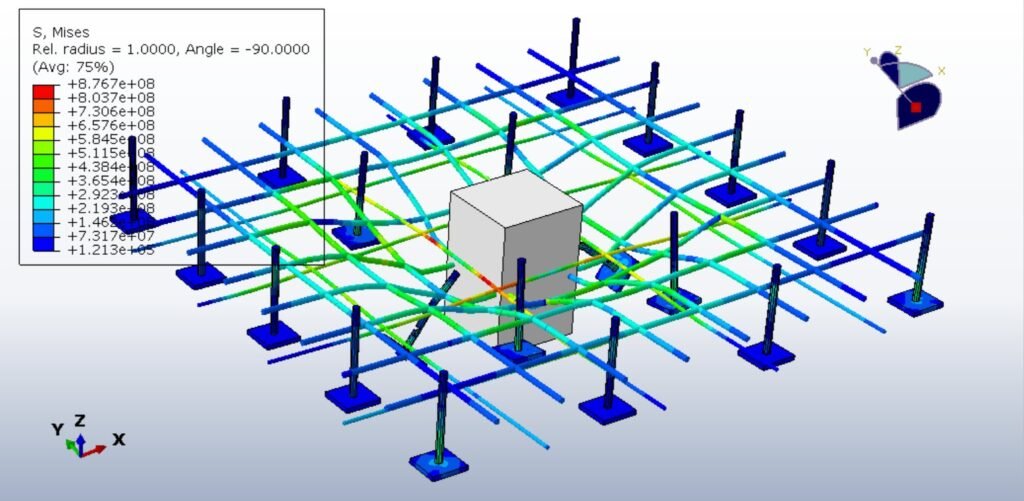
Abstract This study presents the development of a new method for strengthening Reinforced Concrete (RC) slabs using Carbon Fiber Reinforced Polymer (CFRP) rods and an Ultra-High Performance Fiber Reinforced Concrete (UHPFRC) external jacket with a Mechanical Anchorage System (MAS) under impact loading. Introduction Over the past few decades, the challenges associated with ageing and deterioration […]
Numerical analysis of bolted shear connectors in concrete slabs with steel deck
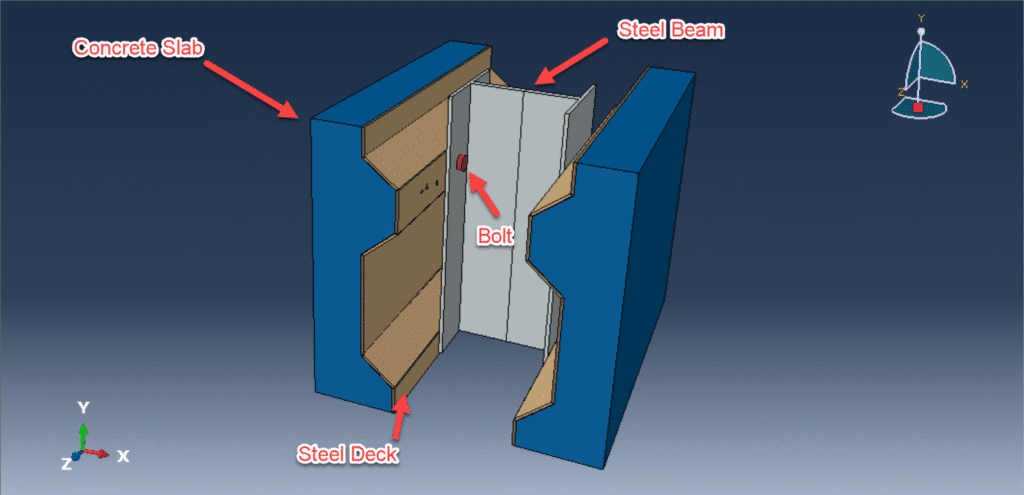
Introduction In composite construction, the integration of concrete slabs with steel beams is a widely adopted method due to its efficiency in structural performance and cost-effectiveness. A crucial element in this system is the shear connector, which ensures composite action between the concrete slab and the steel member by transferring longitudinal shear forces across the […]
Analysis of bolts used as shear connectors in concrete-filled steel column
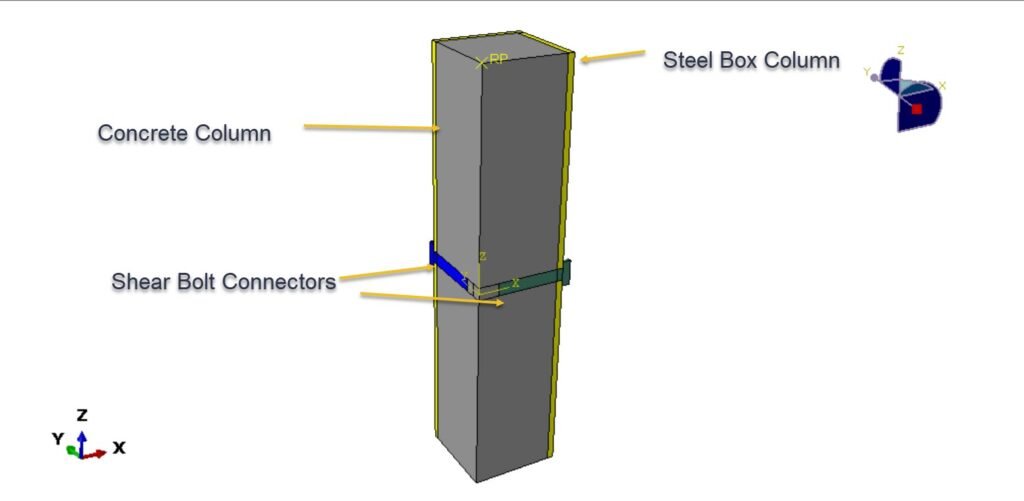
Introduction: Bolts as Shear Connectors in Concrete-Filled Steel Columns Concrete-filled steel tube (CFST) columns are widely used in modern structural engineering due to their excellent load-bearing capacity, ductility, and fire resistance. These composite columns combine the high compressive strength of concrete with the tensile strength and ductility of steel, resulting in efficient and economical load-carrying […]
Push-Out analysis of GFRP-concrete adhesively bonded to steel fibre reinforced self-compacting concrete (SFRSCC)
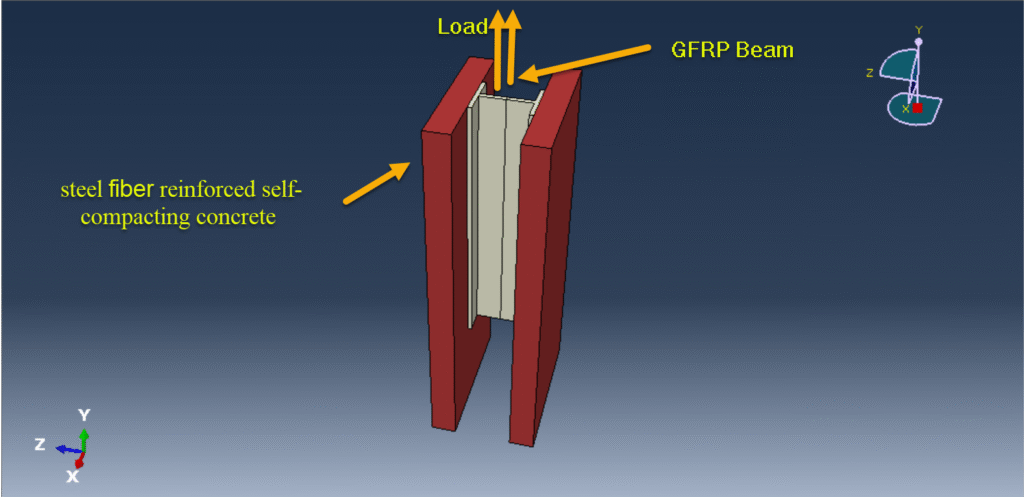
Introduction to Push-Out Analysis of GFRP-Concrete Adhesively Bonded to Steel Fibre Reinforced Self-Compacting Concrete (SFRSCC) Push-out analysis is a widely used experimental method to evaluate the bond performance between different materials in composite systems. In the context of structural engineering, this technique becomes particularly important when dealing with advanced composite materials such as Glass Fibre […]
Simulation of shear-bending behavior of the cracked concrete slab reinforced with UHPFRC
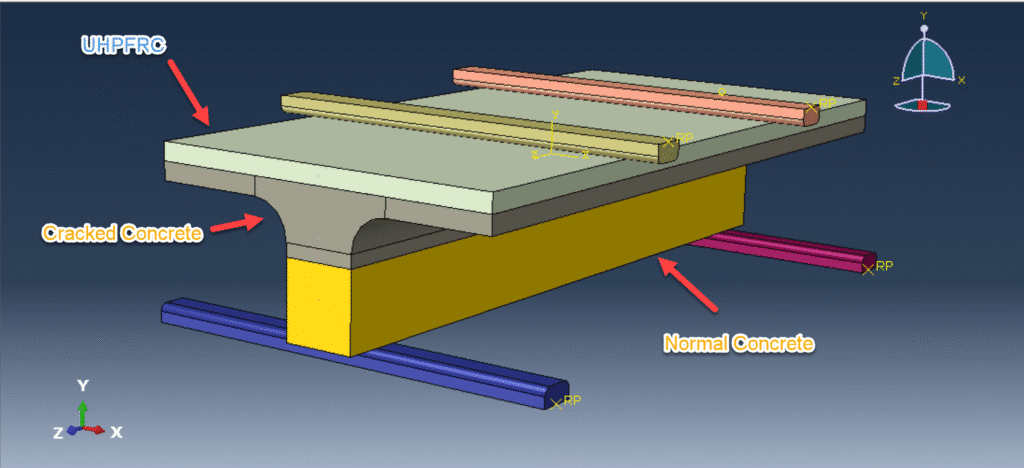
Introduction to Shear-Bending Behavior of Cracked Concrete Slabs Reinforced with UHPFRC Concrete slabs, particularly in bridges and floor systems, are often subjected to combined shear and bending stresses. When conventional reinforced concrete (RC) slabs crack due to loading or environmental effects, their ability to resist shear and bending is significantly compromised. To address these issues, […]
Simulation Pull-Out Test Modeling of GFRP bars bonded with epoxy inside timber
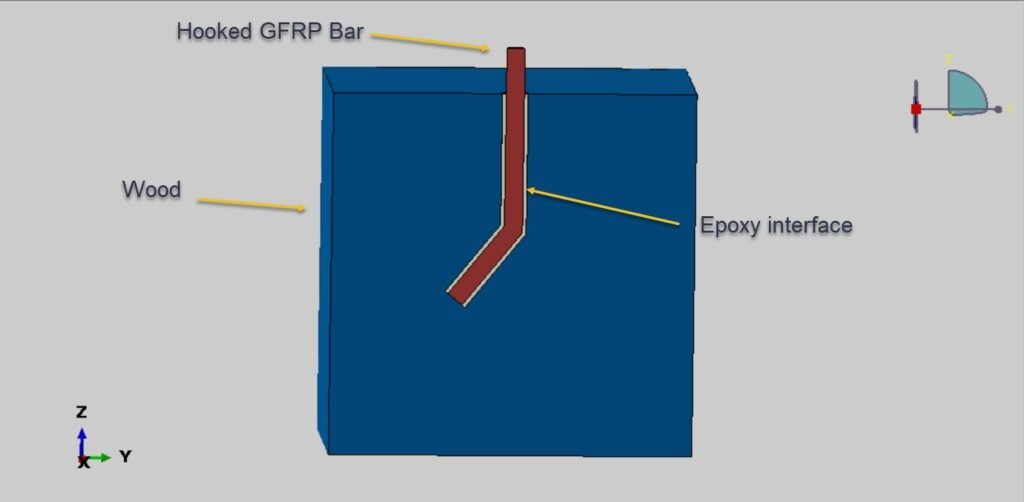
Introduction to Simulation Pull-Out Test Modeling of GFRP Bars in Timber with Epoxy The Pull-Out Test is a widely used experimental method to assess the bond behavior between reinforcement materials and a substrate, such as glass fiber-reinforced polymer (GFRP) bars embedded in timber using epoxy adhesives. This method provides valuable insights into the load transfer […]
Air blast analysis of a composite panel made of CFRP facing and PET foam core
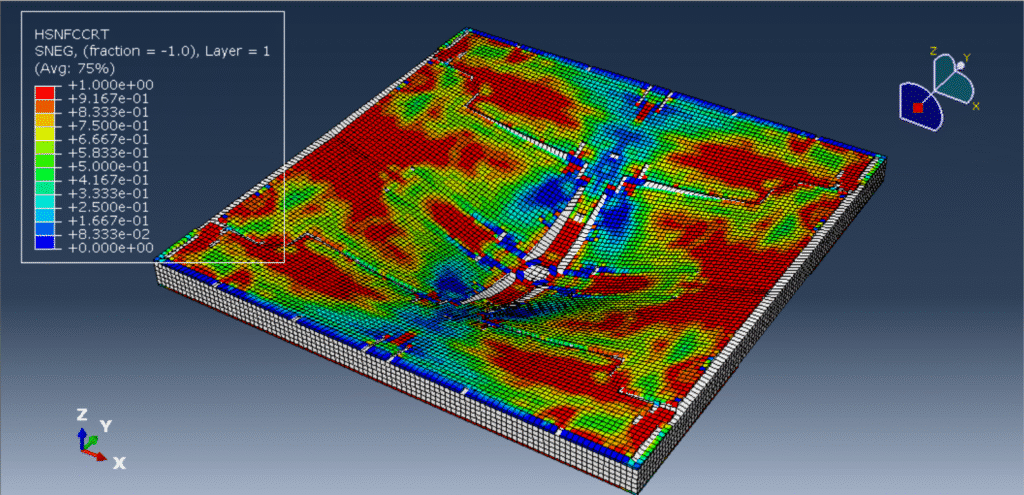
Introduction to Air Blast Analysis of CFRP-PET Foam Composite Panels 1. Background and Importance Composite sandwich structures, typically comprising Carbon Fiber Reinforced Polymer (CFRP) face sheets and a lightweight core such as Polyethylene Terephthalate (PET) foam, are widely used in aerospace, automotive, and defense industries due to their high stiffness-to-weight ratio, excellent energy absorption, and […]
Simulation Concrete Cylinder Compression Test
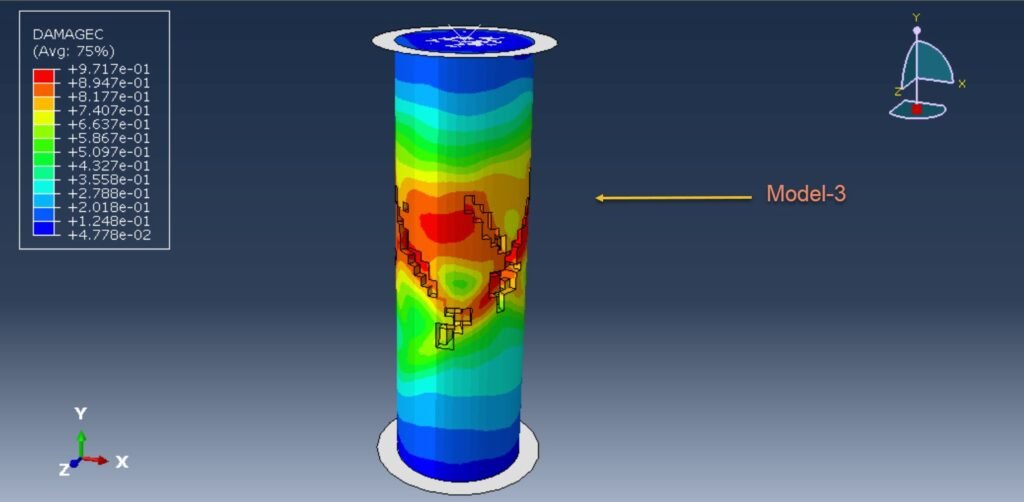
The concrete cylinder compression test is a standard laboratory procedure used to determine the compressive strength of concrete. It involves applying a uniaxial compressive load to a concrete cylinder specimen until failure occurs. This test is fundamental in civil engineering, as compressive strength is one of the most critical properties of concrete, directly influencing structural […]
Simulation the CEL water sloshing in the airy CFRP composite tank
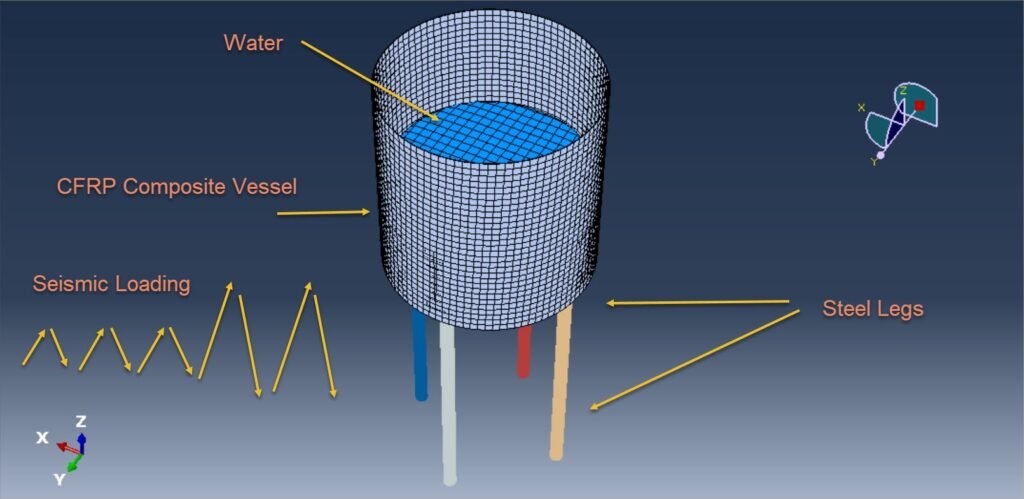
The accurate prediction of fluid-structure interaction (FSI) phenomena, such as liquid sloshing, is crucial in the design and safety analysis of lightweight composite tanks used in aerospace and marine applications. Sloshing refers to the oscillatory motion of a liquid inside a container, often induced by external excitations such as acceleration, vibration, or impact. This motion […]
Low and High velocity impact analysis of a T-shaped steel reinforced concrete column
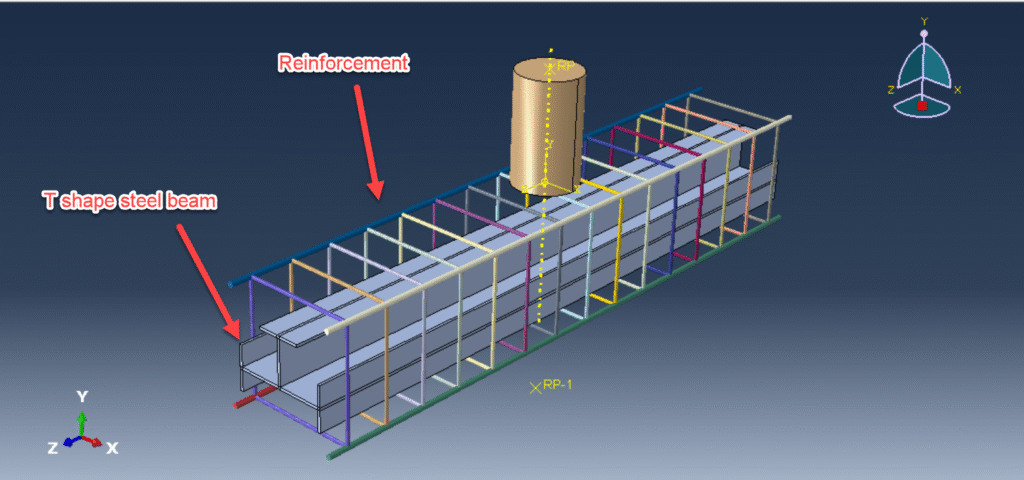
Steel-reinforced concrete (SRC) columns have been widely used in engineering structures, such as super high-rise buildings, bridges, and railway stations, due to the high bearing capacity and excellent seismic resistance of SRC columns, compared to reinforced concrete (RC) columns. columns. During their service life, these structures may experience various kinds of impact-loading, caused by collision, […]

